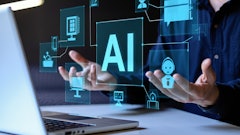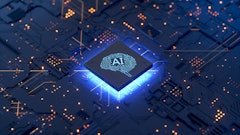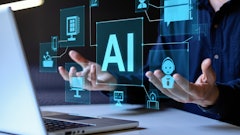
Companies that are resistant to using the latest technology are likely to fall behind among competitors, especially as advancements continue to develop rapidly. Supply chain leaders and decision-makers must explore what is available to them, to understand how AI and automation can fit their business needs and therefore improve operations.
In an ever-changing industry, there are many technological advancements in progress that are set to affect the future of the supply chain, including autonomous trucking to optimize route planning and transportation management systems (TMS).
Navigating Disasters and Complex Obstacles
Navigating disasters and complex obstacles is not a simple operation. The recent Red Sea attack significantly impacted the industry, with route times and shipping costs driven up rapidly, as a route regularly used by 15% of global shipping traffic before the crisis was severely disrupted in the long term.
However, it is predicted that AI will help leaders to tackle unpredictable disruptions, commenting “As peak shipping season approaches where shipping charges increase to meet higher freight capacity demands, we are actively reviewing the role AI holds in supporting disruption management and support, to create a more efficient and safer environment for businesses around the globe.
Currently, AI demand predictions allow businesses to adjust shipment volume until situations such as the Red Sea attack improve. AI can analyze the market, identifying opportunities to shift modes, and offer solutions based upon how markets have reacted to similar issues previously.
AI’s Impact on Supply Chain Talent Shortages
Labor shortages are another major concern in the industry, with warehouse and transportation job openings in the U.S. forecasted to hit 1.7 million this year. By automating tedious and repetitive tasks, resources can be reallocated to boost productivity and efficiency, therefore speeding up processes in supply chains.
While it is natural to feel concerns about the impact AI and automation may have on people’s jobs, we must focus on how these new technologies are helping us to perform jobs better, aiding our work rather than replacing human-filled roles.
Younger generations entering the workforce have grown up surrounded by technology, so are familiar with the use of and reliance on different modern technologies in different aspects of their lives.
AI and Automated Integrations into Freight Shipping
The integration of AI is well underway, with its implementation evident in trucking, freight management, and warehouse automation, already. We’re seeing AI’s integration taking form in a variety of ways, from autonomous trucking to optimization of route planning, forecast demand, and transportation management systems.
Utilizing data, AI can be used in freight management to advance the functions of transportation management systems (TMS) software. This allows supply chain leaders to improve processes and help with decision-making, providing true operational benefits when using an AI-incorporated TMS.
The Impact of Robotics and Warehouse Automation Upon the Supply Chain
The automation and integration of robotics in warehouses is well underway. We know warehouse automation is increasing by over 10% each year, with robot shipments expected to increase by an enormous 50% each year until 2030.
In the warehouse environment, technological advancements offer many benefits to operatives and leaders. Robotic arms present physical help in completing picking and packing, which decreases the chance of human error, improves worker safety, and addresses the ongoing labor shortages being faced. On the other hand, AI can provide strategic support in the form of inventory management, using predictive algorithms to manage stock levels effectively. These additional inventory data points are incredibly valuable for logistics professionals to consider, allowing for enhanced transit predictability, and reduced risk of stock damage and theft, through AI-integrated location tracking and alerts.
Automations in Transport - Trucking
A recent McKinsey & Company survey revealed that fully autonomous trucking is expected to be successfully working in four to seven years. Expectations of future vehicles include sensors, actuators, algorithms, and machine learning systems, designed to allow trucks to operate and manage potential challenges on the road safely without human input.
Predicted benefits of autonomous trucks will be improved shipping time, with the removal of necessary human breaks such as sleeping and eating. However, many regulatory hurdles will have to be overcome before autonomous trucks can be fully utilized on our roads. For example, Assembly bill 316, passed in California last year, states that humans must be trained and present while autonomous semi-trucks and big rigs are operated.
As electric and autonomous trucks undergo necessary development, intermodal transportation offers many similar benefits, already. Intermodal shipping combines multiple modes of transport (trains and trucks) in the most efficient and environmentally friendly manner. Trains, used for the long-haul portion of the transit, are significantly more fuel-efficient than trucks, offer lower fuel costs for large volumes of freight, and are less susceptible to traffic congestion, offering cost-efficiency, reliability and reduced carbon emissions.



















